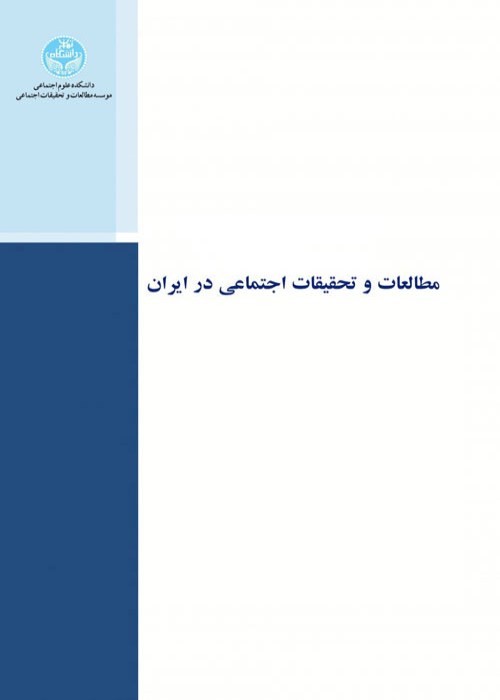The Effect of COVID-19 Disease on Environmental Behaviors: Application of Protection Motivation Theory
Author(s):
Article Type:
Research/Original Article (دارای رتبه معتبر)
Abstract:
Introduction
COVID-19 disease is one of the greatest global challenges of the 21st century, which was first reported in December 2019 in the city of Wuhan, China. Due to the wide spread of this disease throughout the world, including Iran, and its impact on various dimensions of human life, some studies focused on human behavioral effects on the environment in different populations. Identifying the behavioral factors influencing preventive behaviors for COVID-19 are crucial in devising public health policies to promote essential strategies to combat the pandemic in an efficient manner. The present study investigated the influence of COVID-19 disease on the environmental behavior of Tehran citizens with applying protection motivation theory (PMT).Methods
In this research, a survey was conducted. The statistical population of this research was all citizens of Tehran city with a number of 8,693,706 people, out of which 400 people were selected as the sample population using the available sampling method. A questionnaire was prepared by the researchers' team to collect data. The validity of the questioned was accredited by a group of experts as face validity and its reliability were confirmed by using Alpha Cronbach.Findings
Mean age of the participations was 35.33±8.32 years. 55.8 percent of the participants were women and 44.2 percent were men. Regression model showed perceived threat (ß =0.257), perceived costs (ß=0.225), perceived self-efficacy (ß =0.351), and perceived fear (ß=0.79.88) as the significant predictors of COVID-19 preventive behaviors. This model accounted for 19% of the variance in these behaviors. The results of the study based on regression model showed that protection motivation has a direct and significant effect on environmental behavior (Beta=0.193 and Sig=0.000). This means PMT explained 19% of variance of the dependent variable (environmental behavior).Conclusions
The results of this study confirm that MPT explained how COVID-19 disease has affected on people environmental behavior in Tehran, Iran. In more details, the results of this study showed the role of the constructs of protective motivation (perceived threat, perceived sensitivity, and responsiveness) and fear on environmental behavior. These results challenge much health communication during the COVID-19 pandemic that has been designed to persuade people more than to inform them. These results can be used in COVID-19 information and persuasion policies and in health education. Both persuading people and informing them are reasonable goals for health communicationKeywords:
Language:
Persian
Published:
Quarterly of Social Studies and Research in Iran, Volume:11 Issue: 4, 2023
Pages:
1009 to 1022
magiran.com/p2530910
دانلود و مطالعه متن این مقاله با یکی از روشهای زیر امکان پذیر است:
اشتراک شخصی
با عضویت و پرداخت آنلاین حق اشتراک یکساله به مبلغ 1,390,000ريال میتوانید 70 عنوان مطلب دانلود کنید!
اشتراک سازمانی
به کتابخانه دانشگاه یا محل کار خود پیشنهاد کنید تا اشتراک سازمانی این پایگاه را برای دسترسی نامحدود همه کاربران به متن مطالب تهیه نمایند!
توجه!
- حق عضویت دریافتی صرف حمایت از نشریات عضو و نگهداری، تکمیل و توسعه مگیران میشود.
- پرداخت حق اشتراک و دانلود مقالات اجازه بازنشر آن در سایر رسانههای چاپی و دیجیتال را به کاربر نمیدهد.
دسترسی سراسری کاربران دانشگاه پیام نور!
اعضای هیئت علمی و دانشجویان دانشگاه پیام نور در سراسر کشور، در صورت ثبت نام با ایمیل دانشگاهی، تا پایان فروردین ماه 1403 به مقالات سایت دسترسی خواهند داشت!
In order to view content subscription is required
Personal subscription
Subscribe magiran.com for 70 € euros via PayPal and download 70 articles during a year.
Organization subscription
Please contact us to subscribe your university or library for unlimited access!




